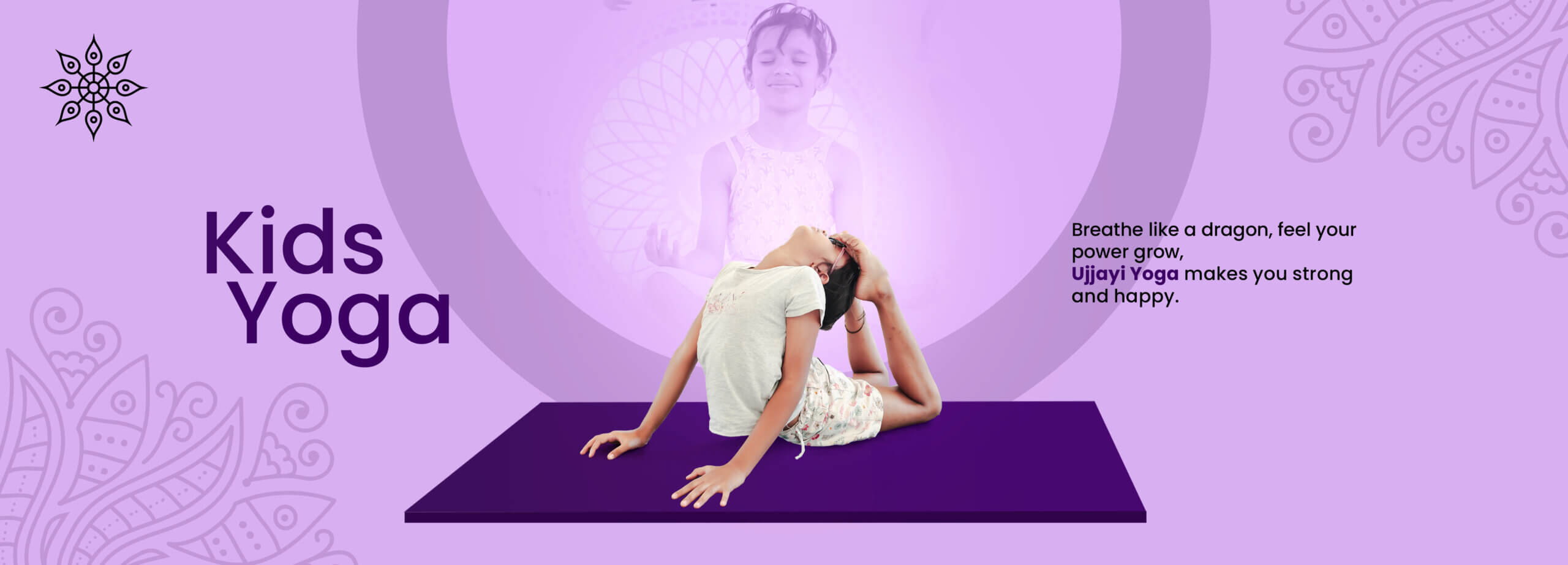
Our Kids Yoga program is designed to introduce children to the benefits of yoga in a fun, engaging, and playful way. Through creative poses, storytelling, and interactive activities, kids will learn how to move their bodies, improve their concentration, and develop emotional balance. This class is a great way for kids to stay active, improve their flexibility, and learn valuable life skills, all while having fun!
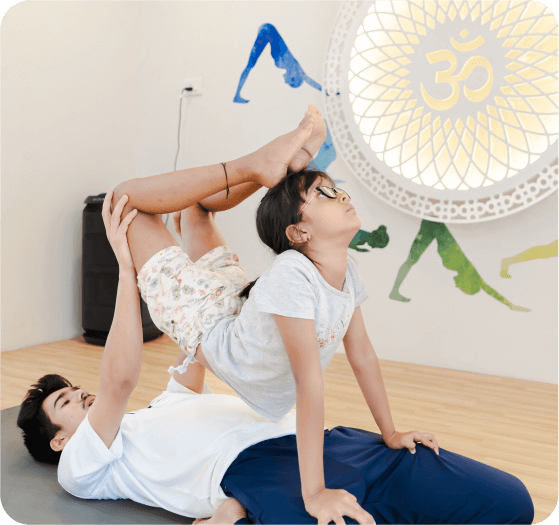
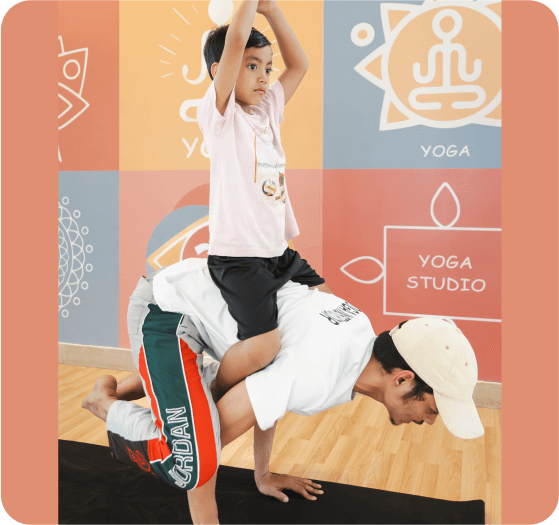
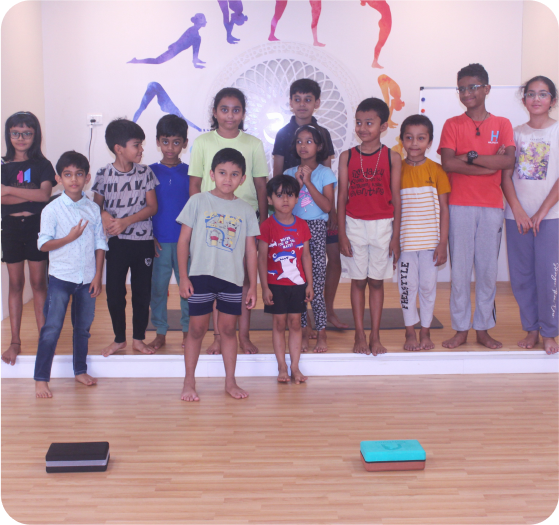




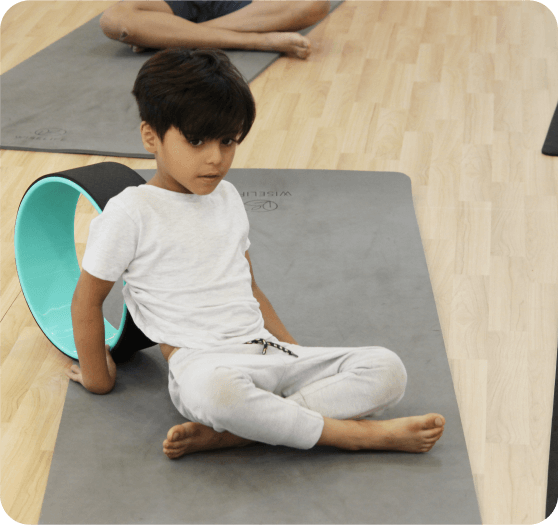
Kids Yoga is a fun, playful version of yoga designed specifically for children. It combines basic yoga poses, breathing exercises, and mindfulness techniques with storytelling, music, and games to keep kids engaged. The focus is on improving flexibility, balance, strength, and emotional regulation while fostering a sense of calm and focus.
Kids Yoga offers many physical and mental benefits, including:
Kids Yoga can be introduced as early as 3-4 years old, depending on the child’s development and attention span. Classes for younger children usually focus on basic movement, breathing, and mindfulness through play and storytelling. As children grow, the complexity of the poses and practices can increase. There are even classes designed for teenagers that focus on building strength and coping skills.
: In a Kids Yoga class, you can expect a fun and interactive experience. The class typically includes:
: Kids Yoga is adapted to be age-appropriate and engaging for children. Unlike adult yoga, which focuses on deep stretches and advanced poses, Kids Yoga is more playful, with less emphasis on form and more emphasis on fun. Children learn through movement, storytelling, and imagination, and the classes often include games and props to make the practice more interactive.
Typically, all your child needs is comfortable clothing that allows for movement. Some studios provide mats for kids, but if you’re practicing at home, a child-sized yoga mat can be a good idea. Props like blocks, straps, and stuffed animals are sometimes used in kids’ classes to help make poses more fun and accessible.
Kids Yoga classes are usually between 30 to 45 minutes, depending on the age group. For younger children, shorter sessions tend to be more effective, as they have shorter attention spans. As children get older, the length of the class may gradually increase.
Yes, Kids Yoga can help improve flexibility. Yoga poses stretch and strengthen the muscles, which can enhance range of motion and prevent stiffness. However, flexibility is just one of many benefits of yoga. Kids also learn body awareness, coordination, and how to listen to their bodies, which helps them develop a strong foundation for overall physical health.
Most children are ready for Kids Yoga when they are able to follow simple instructions and enjoy physical activity. If your child is curious about yoga, enjoys moving their body, or needs an outlet for energy, they are likely ready. Kids Yoga is very adaptable, so even if your child is shy or active, the classes are structured to be inclusive and supportive.
Kids Yoga can be adapted for children with special needs or physical limitations. Many kids with autism, ADHD, or other developmental differences benefit from the structure and calming nature of yoga. The poses and exercises can be modified to suit the child’s abilities, and instructors often have experience working with children who have physical or developmental challenges. If your child has specific needs, it’s important to inform the instructor beforehand so they can provide the necessary accommodations.
: Yes, Kids Yoga can be very helpful for children who struggle with emotional regulation, impulsivity, or behavioral challenges. Through mindfulness practices, breathing exercises, and body awareness, children can learn how to calm their minds and bodies, reducing stress and anxiety. Yoga can also teach kids how to manage big emotions like anger, frustration, or sadness in a healthy way.
Kids Yoga promotes focus and concentration through structured activities like mindful breathing and holding poses. These practices teach children how to tune into their bodies and their breath, which can enhance attention span and self-awareness. Yoga also encourages mental discipline, helping children stay present and calm even in challenging situations.
Kids Yoga is designed with energetic children in mind! While some classes include moments of stillness for breathing or relaxation, the majority of the class involves moving and engaging with the body. Teachers incorporate games, storytelling, and imaginative play to help keep active children engaged and to allow them to express their energy in a healthy, structured way.
Yes, Kids Yoga can be very effective in helping children manage anxiety and stress. Breathing exercises, mindful movement, and relaxation techniques promote a sense of calm and help children regulate their emotions. The practice encourages kids to slow down, pay attention to their breath, and release tension in their bodies, which can help reduce stress and anxiety.
For younger children (typically under 5), it’s common for parents to stay in class to offer comfort and support. As children grow older, they may be able to participate independently. Each class structure may vary, so it’s a good idea to check with the instructor to see if parent participation is required or if it’s okay for kids to attend solo. Either way, parents can also benefit from yoga practice, so attending together can be a fun bonding experience.
Our mission is to empower individuals of all ages and fitness levels to embark on a journey of self-discovery, inner peace, and physical strength.
Copyright © 2024 Ujjayi Yoga Fitness | All Rights Reserved | Made By Think Venky Studio
WhatsApp us